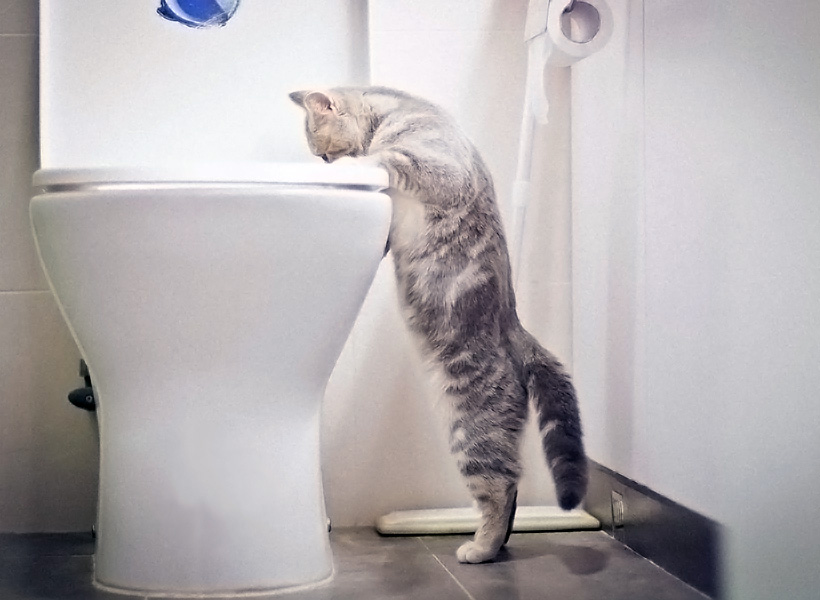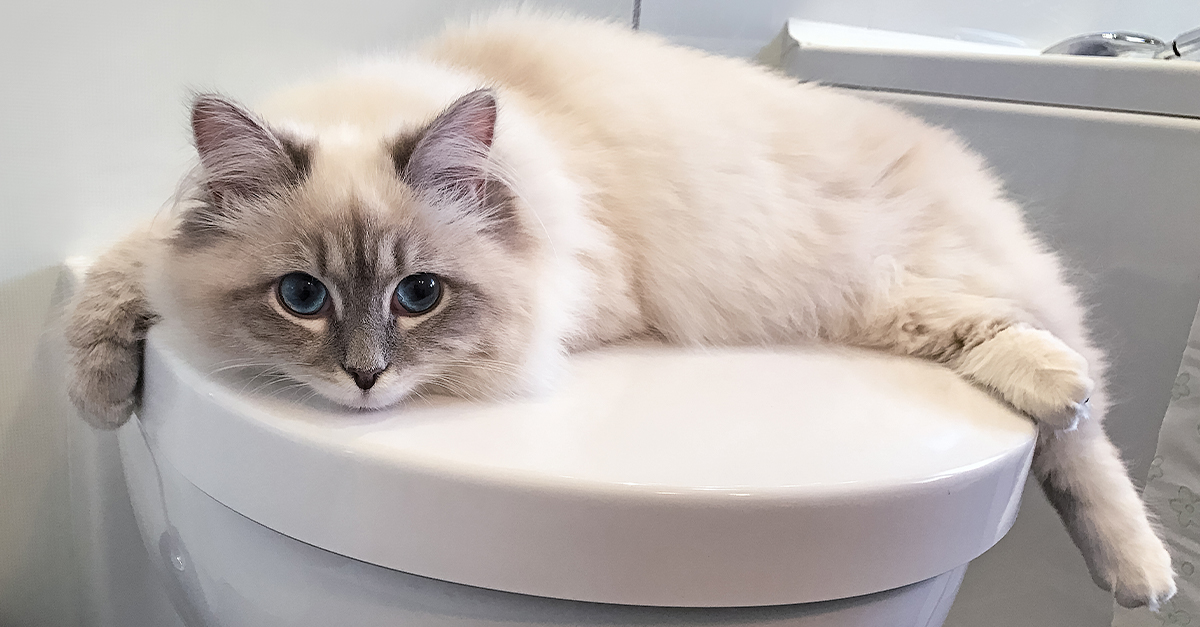Avoid Clogs and Damage: Don't Flush Cat Poop Down Your Toilet - Expert Recommendations
Avoid Clogs and Damage: Don't Flush Cat Poop Down Your Toilet - Expert Recommendations
Blog Article
Just how do you actually feel about Don’t flush cat feces down the toilet?

Intro
As feline proprietors, it's important to bear in mind exactly how we dispose of our feline good friends' waste. While it may appear convenient to purge feline poop down the bathroom, this practice can have destructive repercussions for both the atmosphere and human health.
Ecological Impact
Flushing cat poop presents unsafe virus and bloodsuckers into the water, presenting a considerable threat to water communities. These impurities can adversely impact aquatic life and concession water high quality.
Health Risks
In addition to ecological issues, purging cat waste can also present wellness risks to human beings. Cat feces might have Toxoplasma gondii, a parasite that can trigger toxoplasmosis-- a possibly extreme illness, especially for expectant ladies and people with damaged body immune systems.
Alternatives to Flushing
Thankfully, there are much safer and a lot more liable means to dispose of cat poop. Think about the complying with choices:
1. Scoop and Dispose in Trash
One of the most common method of throwing away cat poop is to scoop it into a naturally degradable bag and toss it in the garbage. Make certain to make use of a committed clutter inside story and dispose of the waste immediately.
2. Usage Biodegradable Litter
Select eco-friendly pet cat trash made from products such as corn or wheat. These trashes are eco-friendly and can be safely thrown away in the garbage.
3. Bury in the Yard
If you have a lawn, think about burying feline waste in a designated area away from veggie yards and water resources. Make sure to dig deep enough to prevent contamination of groundwater.
4. Install a Pet Waste Disposal System
Invest in a pet garbage disposal system especially made for feline waste. These systems utilize enzymes to break down the waste, decreasing odor and ecological influence.
Final thought
Accountable pet ownership expands past supplying food and shelter-- it also entails appropriate waste management. By refraining from purging feline poop down the toilet and choosing different disposal methods, we can minimize our ecological footprint and protect human wellness.
Why Can’t I Flush Cat Poop?
It Spreads a Parasite
Cats are frequently infected with a parasite called toxoplasma gondii. The parasite causes an infection called toxoplasmosis. It is usually harmless to cats. The parasite only uses cat poop as a host for its eggs. Otherwise, the cat’s immune system usually keeps the infection at low enough levels to maintain its own health. But it does not stop the develop of eggs. These eggs are tiny and surprisingly tough. They may survive for a year before they begin to grow. But that’s the problem.
Our wastewater system is not designed to deal with toxoplasmosis eggs. Instead, most eggs will flush from your toilet into sewers and wastewater management plants. After the sewage is treated for many other harmful things in it, it is typically released into local rivers, lakes, or oceans. Here, the toxoplasmosis eggs can find new hosts, including starfish, crabs, otters, and many other wildlife. For many, this is a significant risk to their health. Toxoplasmosis can also end up infecting water sources that are important for agriculture, which means our deer, pigs, and sheep can get infected too.
Is There Risk to Humans?
There can be a risk to human life from flushing cat poop down the toilet. If you do so, the parasites from your cat’s poop can end up in shellfish, game animals, or livestock. If this meat is then served raw or undercooked, the people who eat it can get sick.
In fact, according to the CDC, 40 million people in the United States are infected with toxoplasma gondii. They get it from exposure to infected seafood, or from some kind of cat poop contamination, like drinking from a stream that is contaminated or touching anything that has come into contact with cat poop. That includes just cleaning a cat litter box.
Most people who get infected with these parasites will not develop any symptoms. However, for pregnant women or for those with compromised immune systems, the parasite can cause severe health problems.
How to Handle Cat Poop
The best way to handle cat poop is actually to clean the box more often. The eggs that the parasite sheds will not become active until one to five days after the cat poops. That means that if you clean daily, you’re much less likely to come into direct contact with infectious eggs.
That said, always dispose of cat poop in the garbage and not down the toilet. Wash your hands before and after you clean the litter box, and bring the bag of poop right outside to your garbage bins.
https://trenchlesssolutionsusa.com/why-cant-i-flush-cat-poop/

Do you appreciate more info about Don’t flush cat feces down the toilet? Try leaving feedback further down. We'd be glad to listen to your thoughts about this post. We hope that you come back again later on. Do you know about another person who is curious about the subject? Please feel free to promote it. Thanks for your time invested reading it.
Schedule Today Report this page